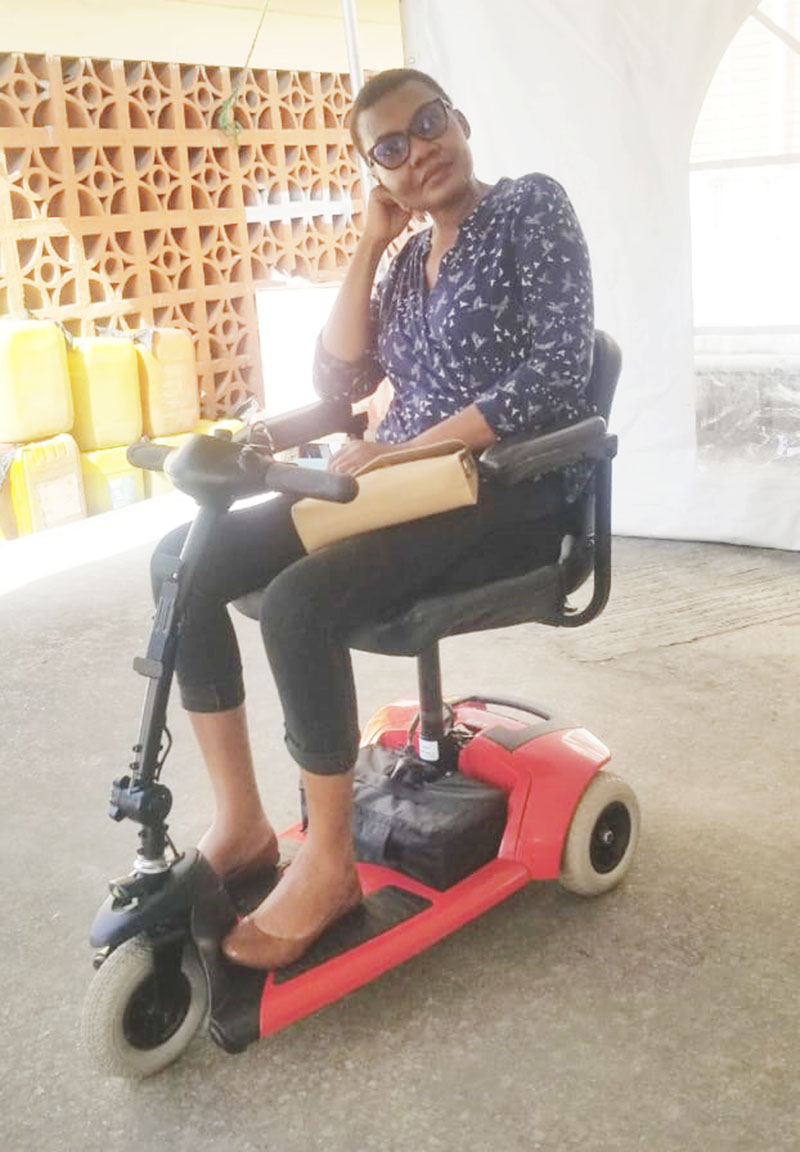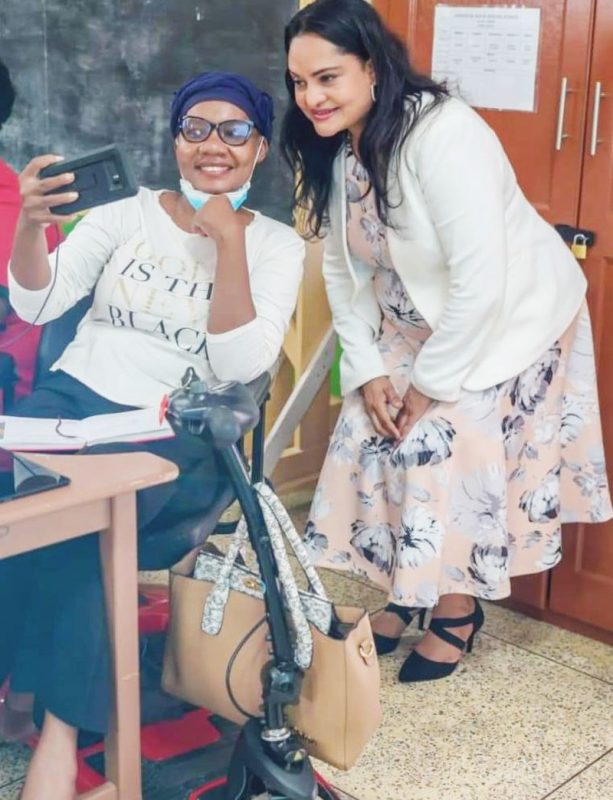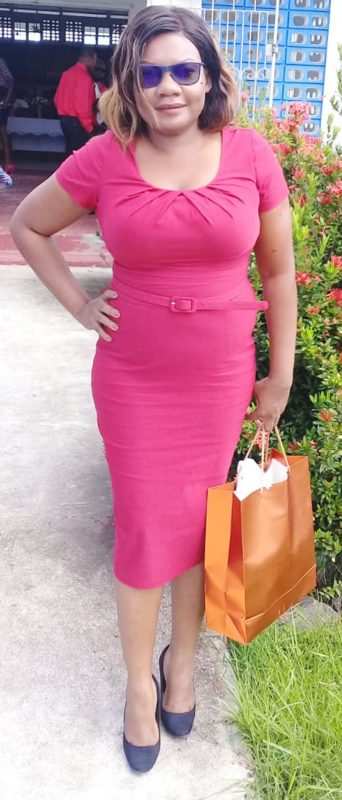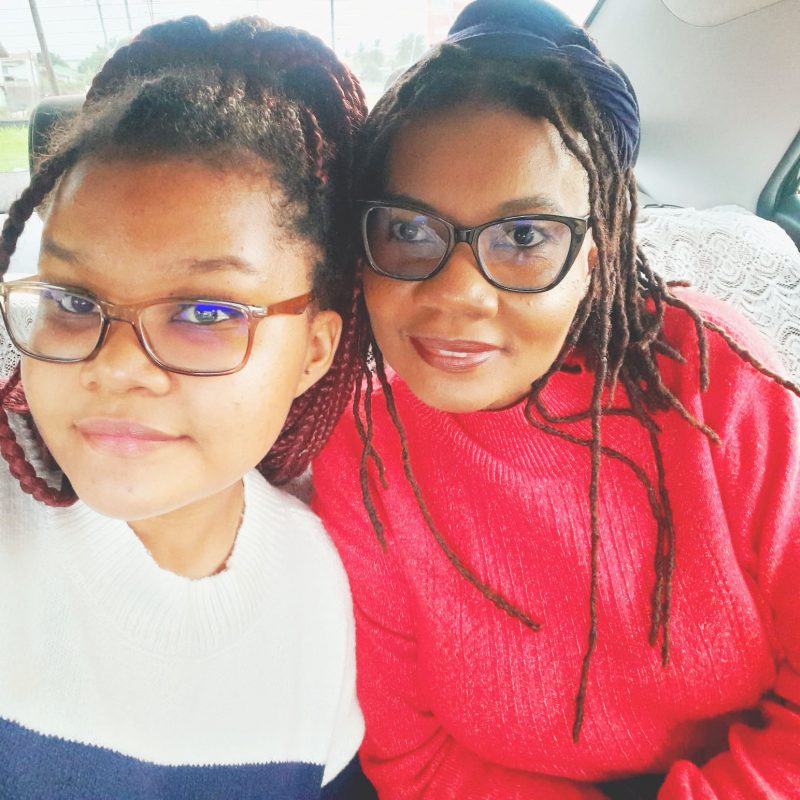Holly-Anne Maksyhung, always one for adventures, had just moved to a new country and a new job when her mobility suddenly became difficult. She was not only stubbing her toes regularly, but climbing the stairs also became an arduous task. Within months, she no longer could walk and even the muscles in her upper body became weakened.
Maksyhung, a mother of a 15-year-old daughter, was later diagnosed with chronic inflammatory demyelinating polyradiculoneuropathy (CIDP), a neurological disorder characterised by progressive weakness and impaired sensory function in the legs and arms.
According to the National Institute of Neurological Disorder and Stroke, it is a disorder which is sometimes called chronic relapsing polyneuropathy, caused by damage to the myelin sheath (the fatty covering that wraps around and protects nerve fibres) of the peripheral nerves. Though it can occur at any age and in both genders, CIDP is more common in young adults, and in men more than women. It often presents with symptoms that include tingling or numbness (beginning in the toes and fingers), weakness of the arms and legs, loss of deep tendon reflexes (areflexia), fatigue, and abnormal sensations.
Maksyhung’s diagnosis was in 2019, but always a fighter she almost immediately became a disability advocate as even as she lay in the hospital bed she started thinking about ways to become mobile again.
“…When I became a PWD [person with a disability]… even though I was not prepared for it and it wasn’t something that I could have explained, I used the same passion that I have for life to become an advocate for the community because we need a voice and there are persons who are wheelchair users and I am sure they are advocating in their corner for us but sometimes it is not visible…,” she said.
Although she has the hope of becoming fully mobile again, she is today a wheelchair user and she and others who are also in wheelchairs are about to launch the Guyana Association for Persons with Physical Disabilities (GAPPD), which would advocate for all PWDs but mainly for those who are in wheelchairs. Maksyhung also ensures that she accesses the services available in an effort to make it easier for wheelchair users and to encourage them not to hide at home but to be bold and advocate for their rights.
“I started having problems walking. I started noticing that I was [stubbing] my toes a lot and having problems like climbing stairs…,” she told Stabroek Weekend in a recent interview. She was 40 years old at the time and had never had any such illness before.
She shared that she has been working since she was 19 and always had jobs that kept her active and so when her mobility was affected she noticed it right away as she was not as quick on her feet as before. It was about three months after she knew something was wrong that she was diagnosed but by then she had already lost the ability to walk.
Believing in Guyana’s healthcare system, Maksyhung said, she opted to return to Guyana after she became ill and the team that is handling her illness has been very supportive.
When she lost her mobility, the single mother said, her personality did not allow her to dwell on the negative for too long.
“So, after the initial shock I went from okay I can’t walk to what’s the next step… I didn’t dwell too much on losing the ability to walk. I went from this is what is happening to me, to what can I do next. So even before I was out of the hospital I had already ordered a walking stick. I had already ordered a walker because I didn’t want to be bedridden,” she shared.
She fought against being bedridden and as soon as she got home she demanded that her relatives get her up even if it was just to make two steps. “I never surrendered myself to my illness” even though it was scary that she was “losing a part of herself” and her independence, she said.
Maksyhung did share that there were bad days when she had panic attacks and when she questioned why her, and what had she done to deserve such an illness. But with strong family support and a few friends she didn’t have to dwell on negatives too long because she saw the positives.
“Yes I couldn’t walk and those were days when I couldn’t get out of bed but guess what? I was still able to use my fingers and so I was still able to help my cousins study for their exams, help
somebody write a job letter, help somebody with a CV… So I never allowed myself to just be sick and stay sick,” she added.
Maksyhung continues to take treatment for the condition which involves therapy and medical intervention from time to time. At home she does not use the wheelchair but a walker, which for safety reasons she does not use out in public. As much as she can she is still involved in getting house duties done.
Always looked out
Now a person with a disability, she is part of a community that she always looked out for. Maksyhung recalled that in her last place of local employment, the Guyana Marriott, she always tried to ensure that employment was offered to PWDs.
“I believe that everyone has a right to earn, everyone has a right to live with dignity. And growing up in Georgetown, the only time you saw a disabled person was when you saw them at the side of the road begging and I always thought that was wrong. And then I knew there was a school that did training which gave persons life skills and I always wondered if they are going to school why aren’t we seeing them in the workplace?” she questioned.
Making a conscientious effort to assist PWDs was also as a result of her as a child spending time at the Ptolemy Reid Rehabilitation Centre, where her mother worked. Her mother always spoke highly of those people. She also recalled that PWDs at the centre were making envelopes to sell, into craft and painting and she believed they deserved a place in society and to not just be on the fringe.
As a result, when she had the opportunity she always was strategic in having them hired in the mainstream workforce.
Locally Maksyhung also worked at Digicel, but as someone who was always up to explore, she has also worked in Grenada and Dominica. She jokingly indicated that being a single parent she did not “have anything to tie me down to Guyana” as her daughter was always up for exploring the world with her mother.
Apart from her condition, Maksyhung’s motivation to form the organisation also stems from the fact that during her illness she could not find any local support group and even after she reached out to the National Commission on Disability she could not find a source of information that she needed then.
“So whenever I had a question I had to go to Facebook, I had to go to YouTube, to get information to deal with not my autoimmune condition but my physical disability. You know— how to use a wheelchair, because I had to learn how to walk again; how to hold simple things like a toothbrush; how to brush my teeth; how to take a shower by myself. I had to basically relearn all of those things,” she explained.
She recalled that while she was paralysed in the lower limbs, she experienced severe muscle weakness in the upper body.
“After realising that I couldn’t find the support here, even the physical aspect and also the emotional aspect of it because as an adult who would have gone through life active…[and] in the space of three months losing all independence I didn’t find that support that I needed..,” she recalled.
When she got a little better she stumbled on the Guyana Council for Persons with Disabilities and she became acquainted with well-known disability advocate Ganesh Singh, who is blind, and with whom she developed a relationship and he offered her needed assistance. However, his disability is different from hers and so he put her in contact with other wheelchair users and it was in conversations that they decided to form an organisation that caters to their needs.
“We decided let’s do something for ourselves and so we are in the process of forming the group. We have already identified our board members, our advisors. We have done the laws, the bylaws and we are in the process of registering the group,” she shared.
The group will advocate for needs as she believes in Guyana when persons think about disability they hardly think of wheelchair users and as such there is no accessibility for them in most public buildings.
She pointed out that this makes it difficult for those who might want to return to the workplace or start working. There is the hurdle of accessibility. Washroom facilities are not wheelchair accessible. It is hoped that the organisation would partner with others to bring awareness to some of the obstacles the community faces and help to alleviate them.
She acknowledged that some of the most recent buildings have ramps but some wheelchair users may not have the upper body strength to access some of the ramps that are steep and they have to seek assistance from others. Maksyhung questioned who is consulted when the ramps are being made.
The group is also looking at partnering with social workers who assist wheelchair users who may need emotional assistance, especially those, like in her case, who suddenly become paralysed.
“A lot of things would change immediately and then you ask where do you turn to, not only the material thing but emotionally that takes a toll on you and who can you talk to?” she questioned.
That she said is not only drastic but it is also traumatic and the organisation wants to be the bridge to help persons and offer them emotional support and point them in the right direction to access service.
Recovery
Based on research, Maksyhung said, she has learnt that the recovery rate for her condition is between 83% and 85% but it takes a long time. For those with the condition, their bodies can betray them and they can go from healthy and strong to bedridden.
The recovery process requires patience because you can be up using your walker and exercise and seeing progress but then get sick again and go right back down.
“Typically it says that our recovery can take three to seven years so it takes a while and you don’t know you are recovered until you have stopped experiencing the physical part of it for a year and then is when you are considered to like recovered,” she said.
November will mark three years since Maksyhung lost mobility in her legs and has not worked. She is looking forward to returning to the workforce.
Another bright spot during what has been a trying period is the reaction of her daughter, who has been very supportive and is not ashamed or afraid of her mother’s illness.
“She has not shied away from my illness. She is the one who takes me to the hospital for my clinic appointment. We try to do things together. We go to church. We go to the mall. We go shopping. We go out in the afternoon for walks because I have a motorised mobility scooter,” she shared, adding that movies and dinners are also part of their schedule.
When she became ill she thought her daughter might not want her to go to her school, but instead she encourages her mother to pick her up, since they don’t live far from the school and they would go home together.
As she continues the recovery journey Maksyhung plans to go out as much as she can to experience the challenges for her community and work towards fixing them. She shared the experience of shopping for her groceries at Giftland Supermarket. The first two times she asked for assistance, but by the third time she was approached and assistance was offered. The same thing now happens at her local Chinese supermarket.
“So unless we put ourselves out there then persons would not cater for some of the needs that we have. Sometimes I want to get my nails done, my hair done, so I have to find a salon that is wheelchair accessible and most would tell you we never thought about it,” she said.
For her that is where her advocacy comes in; she is not holding a placard or talking bad about anybody’s establishment but rather by being present and talking to them they realise that there is a part of Guyanese society that they need to take into consideration for their business.









